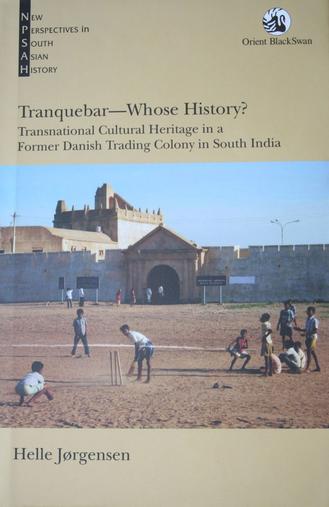Transnational cultural heritage

Tranquebar – or Tharangampadi - has been declared a heritage town by the government of Tamil Nadu due to the presence of a significant number of historical structures dating to 1620–1845, when the town was a Danish trading colony. The remains of past cultural encounters attract wide public and private interest, both from Indian and Danish agents, who have in recent years initiated an unprecedented number of restoration projects; but whose heritage is being preserved in this present cultural encounter? Establishing Tranquebar as a heritage town is not simply a question of preservation of built structures. The changes in the townscape of Tranquebar, in which the historic buildings are a part, are subject to many interests ranging from social development to widely differing aesthetic ideals. The current development in Tranquebar may therefore be seen as a cross-cultural process of interpretation and negotiation, in which the material traces from the past comprised of the built environment are just not historical, but become so, as they acquire special significance by being treated as heritage. This book proposes the concept of the heritage palimpsest to analytically capture the coexistence of differing experiences of historicity and uses of the same townscape.
Jørgensen, Helle. (2014). Tranquebar – Whose History? Transnational Cultural Heritage in a Former Danish Trading Colony in India. Orient Blackswan.